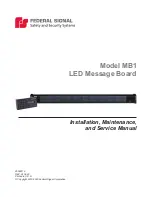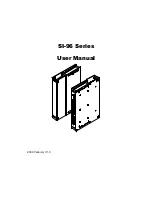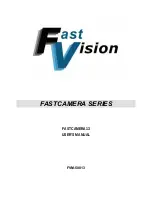
48
www.kodak.com/go/support
Appendix
■
Remove the batteries when the product is stored for an extended period of time. In
the unlikely event that battery fluid leaks inside the product, contact Kodak
customer support.
■
In the unlikely event that battery fluid leaks onto your skin, wash immediately with
water and contact your local health provider. For additional health-related
information, contact your local Kodak customer support.
■
Go to
www.kodak.com/go/reach
for information about the presence of substances
included on the candidate list according to article 59(1) of Regulation (EC) No.
1907/2006 (REACH).
■
Dispose of batteries according to local and national regulations. Go to
www.kodak.com/go/kes.
■
Do not charge non-rechargeable batteries.
For more information on batteries, go to
www.kodak.com/go/batterychart
.
Battery replacement, battery life
KODAK MAX Alkaline Batteries AA: 200 pictures per charge. Battery life per CIPA
testing method. (Approx. number of pictures in Smart Capture mode, using an SD
Card.) Actual life may vary based on usage. For other compatible batteries, see the
Power section in
Camera specifications, page 44
.
Extending battery life
■
Use power-saving features (see
Using the Setup menu, page 32
).
■
Charge Ni-MH batteries when they are nearly depleted.
■
Dirt on the battery contacts can affect battery life. Wipe the contacts with a clean,
dry cloth before loading batteries in the camera.
■
Battery performance is reduced at temperatures below 41
°
F (5
°
C). When using
your camera in cold weather, carry spare batteries and keep them warm. Do not
discard cold batteries that do not work; when they return to room temperature,
they may be usable.











































